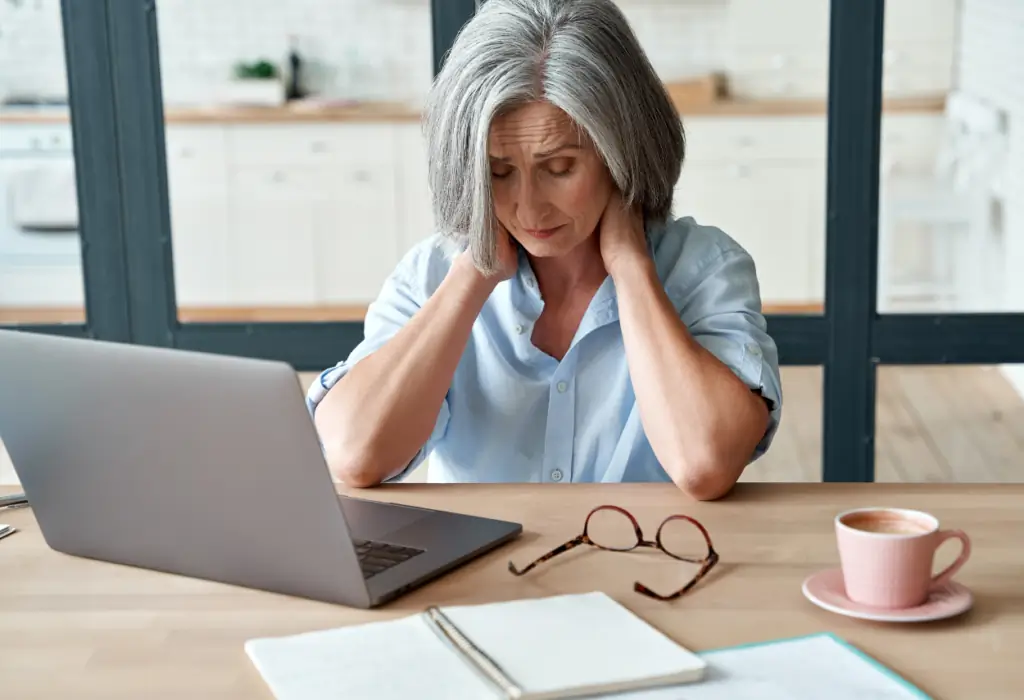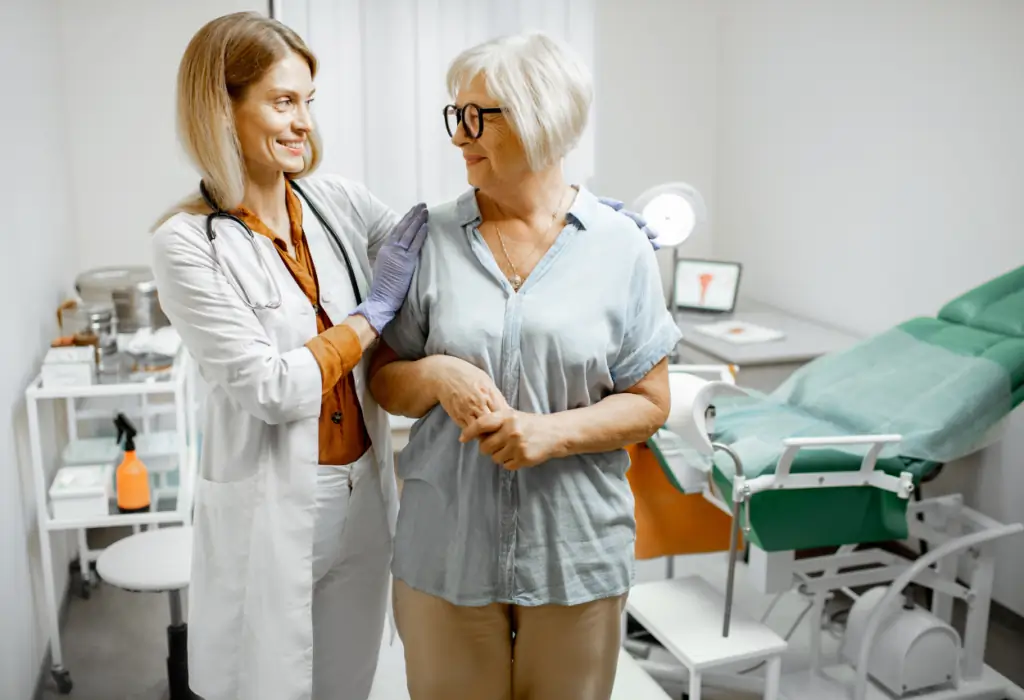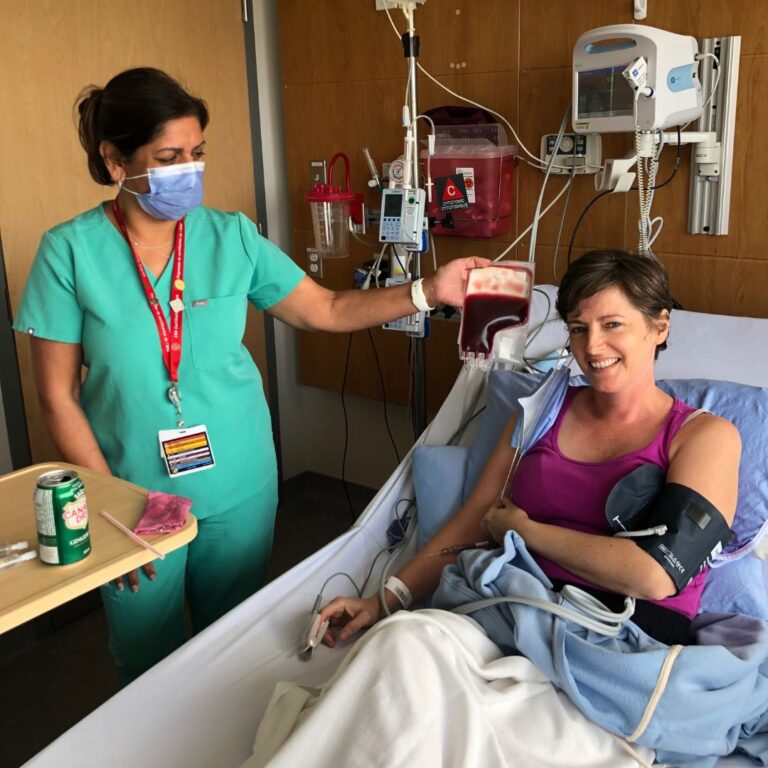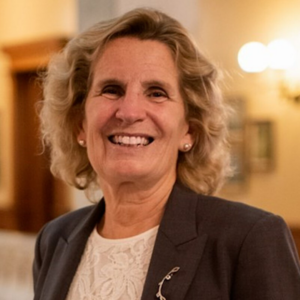Menopause matters: understanding your changing body
Health28.01.2024

When we told people about the launch of The Honest Talk digital platform, one of the first questions we got was, “Are you going to talk about menopause?”
Yes. Of course. We’re definitely going to talk about menopause!
Some members of The Honest Talk team have experience with menopause, and we hope some of you will share your experiences with menopause (or your questions about it — those are very welcome), but we really wanted an expert voice in the mix. Enter Dr. Emily Delpero.
Trained at the University of Toronto, Dr. Delpero is not just an obstetrician gynecologist; she’s a sub-specialist in menopause, vulvar skin conditions, and colposcopy. She’s also passionate about health advocacy — leveraging her medical expertise with her certificate in health journalism. We’re so pleased to have Dr. Delpero to lend her voice and vast knowledge to our Honest Talk about menopause.
Understanding the stages: from perimenopause to postmenopause
It’s kind of funny that menopause gets all the mentions, because perimenopause and postmenopause are where we’ll all spend far more time.
What is perimenopause and when it starts?
“Perimenopause is the transitional phase leading up to menopause, typically beginning between ages 40 and 50, characterized by symptoms that signal hormonal changes.” Dr. Delpero
We’ll discuss those symptoms — which can be wide-ranging, and different for everybody — shortly.
The North American Menopause Society says perimenopause usually lasts between four and eight years, and many women report that symptoms last longer. So, perimenopause … it’s with us for a while.
What is menopause?
“The definition of menopause is one year from your final natural menstrual period or final ovulation — once you reach that final ovulation, and you go one year without a spontaneous period, that’s menopause,” Dr. Delpero says.

What is postmenopause?
Following menopause, we become postmenopausal. Often people will refer to this as being “in menopause” or “menopausal” but the main thing to know is you’ll then be postmenopausal for the rest of your life. The rest of your life.
Are these definitions important? One argument could be no — given that the symptoms are on a continuum, with no clear-cut start or finish, does it really matter what we call the different phases?
On the other hand, it does seem important to acknowledge the true extent of the menopause spectrum. This isn’t just a single milestone, or a short phase. From “peri” to “post,” menopause is an enduring process.

Beyond hot flashes: how does menopause affect a woman?
One of the most important things to note is that everybody’s menopausal experience is unique. “Not all women will have all symptoms for the same amount of time,” Dr. Delpero says.
Menopause is experienced differently by different people and the onset and burden of symptoms can vary.
Dr. Delpero
Having said that, there are clusters of common symptoms that many people experience.
What are the symptoms of perimenopause?
Perimenopause will generally be marked by menstrual changes. Cycles can become more irregular, shorter, more spaced out, heavier, lighter … or, if you want to use just one word: unpredictable.
Also, and this is one Dr. Delpero wants you to know, “People in perimenopause can still get pregnant — if you’re still ovulating, you can get pregnant. The distinction between reproductive years and perimenopause is not absolute — one is phasing out and one is phasing in.” So, no, you don’t get to stop worrying about pregnancy just because you’re also having hot flashes.
While menopause marks an end to menstrual cycles — you should check with your doctor if you have any bleeding after menopause — other symptoms can come and go or rise and fall at any time during your menopause journey.
Dr. Delpero groups these symptoms into two main areas — local and systemic — with mood-related issues being a subset of systemic symptoms.
Local symptoms of perimenopause
With her focus on vulvar skin conditions, Dr. Delpero sees many people experiencing vaginal dryness. “People start to experience discomfort with things like penetrative intercourse and sexual activity that were not previously part of their sex lives,” she says.
They’ve noticed that they’re dry, or they’re itchy, or they’ve experienced sex differently, or it’s more painful.
Dr. Delpero
Systemic symptoms of perimenopause
“I get referrals for all kinds of issues,” Dr. Delpero says.
But I’d say the main thing that people look for help with is around hot flashes, night sweats, and sleep disruption.
Dr. Delpero
She says people also ask about weight gain around the belly or the trunk, as well as brain fog, changes in hair and skin, and, yes, mood.
What are the symptoms of menopause?
Dr. Delpero has good and bad news when it comes to how menopause can affect mood.
The bad: “We know that transitioning into menopause opens a window of vulnerability for anxiety and depression, regardless of whether or not you struggled with it before. So going through that phase can certainly bring up a lot of mood symptoms for people.”
The good: “It can also be a relief for some people who have really struggled their whole lives with mood changes related to their menstrual cycle. Because when their menstrual cycle goes away, that hormonal environment stabilizes and they report relief. For some people who have really bad [symptoms] — we call it PMDD (premenstrual dysphoric disorder) or PMS (premenstrual syndrome) — sometimes part of the treatment is suppressing the ovulation, and putting someone into menopause relieves their mood symptoms.”
Overall, Dr. Delpero says the approach to menopause symptoms must be informed and thoughtful. “If a person has symptoms in this timeframe, it’s common to fall into the trap of saying, ‘Oh, it’s just menopause.’ Either they don’t get referred to a healthcare provider who can help them with it, or they do get referred for an issue that might not necessarily be related to menopause, like indigestion or hives, for instance.”
Ideally, you’d have a good relationship with a doctor who will consider your personal history and current symptoms. If you feel your symptoms aren’t being taken seriously, you might want to read our story on advocating for yourself in a doctor’s office.

Do you need to see a doctor when starting menopause?
If perimenopause, postmenopause, and menopause itself are normal and natural life phases, what role does the healthcare system have to play? When should you see a doctor, and what type of care should you seek out?
It really depends on each individual. Some people may find all they need is to have a general conversation about menopause while at a regular doctor’s appointment. One focus of Dr. Delpero and her colleagues is to help with education so both patients and doctors feel more comfortable having these talks.
For those who do have specific questions, you still may not need specialized care.
Not everyone who goes through menopause needs a gynecologist.
Dr. Delpero
“There are amazing family doctors who have a women’s health designation or who are comfortable in working with women in this phase of life,” Dr. Delpero says.
Of course, there are times when a referral is the right move. Interestingly, Dr. Delpero says women can help with this process. “It’s very helpful actually when a person comes and says, ‘Hey, I was listening to a podcast,’ or ‘Hey, I read this article, and it sounds a lot like me. What can you tell me about that?’ Usually a physician, if they don’t know anything about it will say, ‘That’s interesting. Why don’t I refer you to a provider that knows and can maybe answer your questions?’”
This loops back to trusting your gut and self-advocacy. If you’re getting the support and answers you need from a family doctor, that’s great. However, Dr. Delpero says, “If a person is sitting with a physician who doesn’t know much about the topic, then asking for a referral is appropriate.”

What you can do to think differently about menopause
Thanks to practitioners like Dr. Delpero, we know much more about menopause than we used to, but it’s still not enough. Dr. Delpero acknowledges frustration, while also holding out hope.
This whole area of women’s health is yawning open to all the questions that have built up — they didn’t study women for so long and they just assumed that we’re either not worth studying or [we’re] like men, so I’m really grateful to the people who are interested.
Dr. Delpero
If you want to inform yourself, here are some places to start:
- The Society of Obstetricians and Gynaecologists of Canada’s (SOGC) Menopause and U website is a great resource.
- You can follow Dr. Ardelle Piper on Instagram for helpful menopause-related content.
- And Dr. Jen Gunter is a women’s health rockstar!
Finally, if you’ve always had negative associations with the thought of menopause … maybe don’t? While there are undeniably challenging aspects of menopause, you don’t have to automatically assume the worst.
“Some of my patients describe feeling liberated,” Dr. Delpero says. “They don’t have to worry about contraception. They don’t have to worry about the tyranny of their periods anymore. It’s a phase of life that’s a bit complicated. It’s culturally complicated. It really depends on what your background is. But I will say that people can find liberation in it for sure.”











